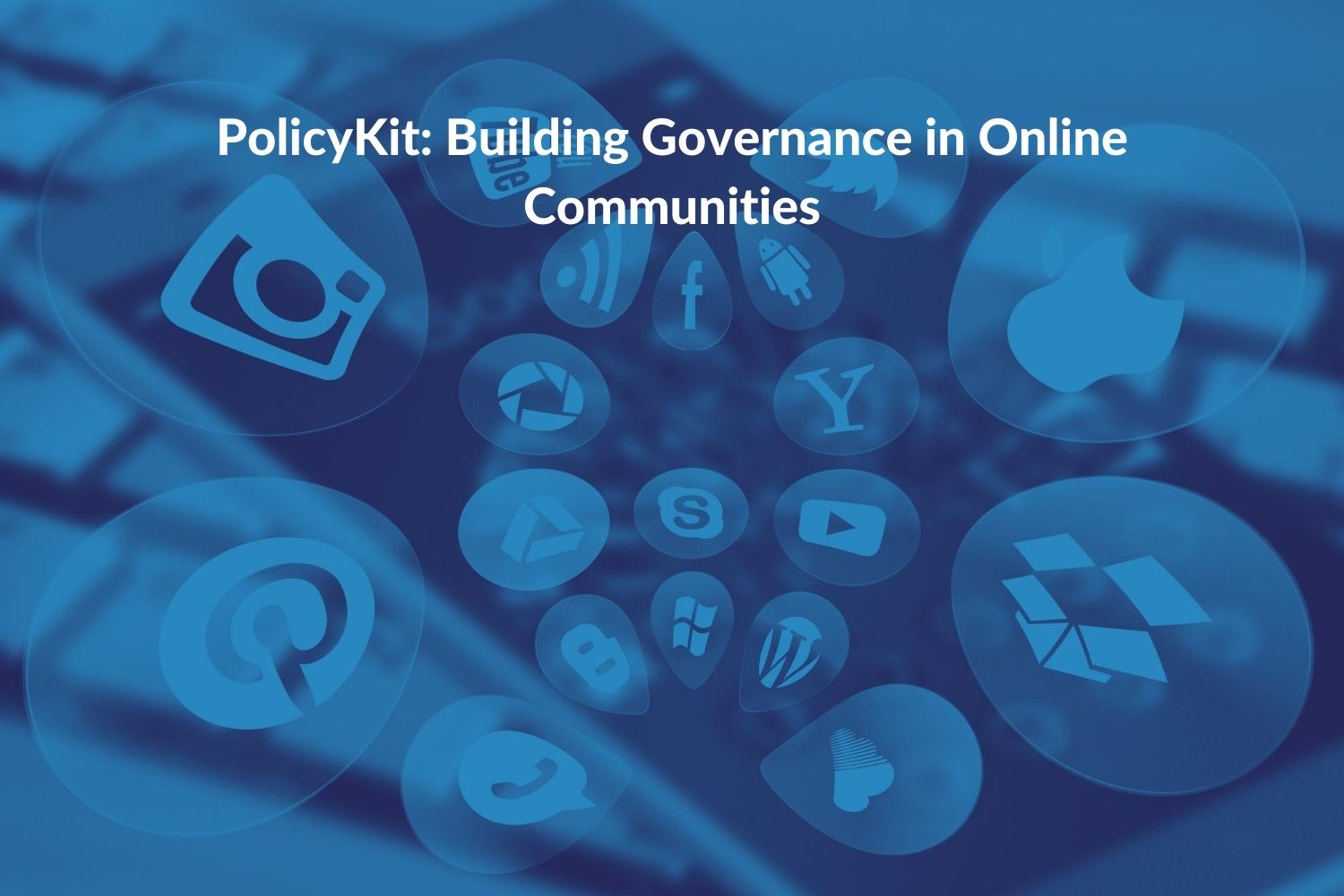

Summary contributed by our researcher Muriam Fancy, who works at CIFAR and is pursuing a Master’s in Markets & Innovation at University of Toronto’s Munk School of Global Affairs & Public Policy.
*Authors of full paper & link at the bottom
Mini-summary: Online communities have various forms of governance, which generally include a permission-based model. Although these governance models do work in theory, these models caused the admin/moderator to burn out, lack legitimacy of the platform, and the governance model itself cannot evolve. The need for alternative governance models for online communities is necessary. Different types of governance models were tested on other platforms such as LambdaMOO – which shifted from a dictatorship (governed by “wizards”) to a petition model that involved voting and wizards implemented the outcome of the votes.
Wikipedia and its openness for multiple contributors also faced a series of conflicts such as processing petitions and voting to solve disputes. But again, it was left to the admins to address these issues, a very manual and labor-intensive process. This report aims to present “PolicyKit” as a software platform that allows and empowers online communities to “concisely author” governance procedures on their home platforms. The analysis of PolicyKit is done based on being able to carry out actions and policies such as random jury deliberation, and a multistage caucus.
Full summary:
Online community governance models are often incapable of evolving; if they are to change, the methods to do so are quite labor-intensive. Online communities are defined as gatherings on platforms such as Slack, Reddit subreddits, Facebook groups, and mailing lists. Governance for these online communities includes roles and permissions. A role and permission based governance model dictates who can join the group and guides decisions about the type of content that can be broadcasted. This model of roles and permission is based on UNIX file permission models on almost all big community platforms. However, these governance models are not flexible to alternative forms of governance. Because of the lack of flexibility, communities are forced to solve their problems with moderated communities, which can lead to moderators facing burn out, new communities’ members being overwhelmed, and reduced legitimacy. This exact problem is what the software “PolicyKit” solves.
The goal of PolicyKit is for online communities to develop and deploy their governance models that include flexible governance policy code that is inspired, borrowed, or altered from other online communities. This can be accomplished form the two main functions of PolicyKit’s infrastructure:
- Software library for users to learn how to write their policies in code.
- A server that can process and execute policies “against actions” within the community.
- Integration of PolicyKit on the platform to know when actions have been performed in the past.
- And finally, access to a website where community members can propose new actions to change the governance model and create new policies in the code editor.
As mentioned previously, a significant issue that this platform solves is to change governance from permissions to procedures, where procedures can allow for alternative forms of governance such as participatory and democratic models. Furthermore, since these actions require a short amount of code that can be inputted by community members, new policies and governance models can evolve faster. Changing the platform’s governance system is possible through two main abstractions that PolicyKit provides, which are actions and policies. Actions are a one-time occurrence within a community that is proposed by a community member. In comparison, policy governs a user’s experience and can govern more than one action. Before a user submits an action, the policy must approve the action itself.
Thus, the platform can function in the following process: a) there must be a platform integration for the community home platform, b) every community hosted on that platform is now able to use PolicyKit, c) once PolicyKit is installed to the community platform, an initial governance system is installed- this governance system is a constitution policy model, d) community members can now propose actions, e) the policy engine continues to review actions to see if they can or cannot occur, f) when the action passes, it is deployed via the PolicyKit server. Finally, PolicyKit has a detailed and secure infrastructure that attempts to secure the accuracy of the policies and test policies before deployment to reduce the risk that can be posed to the community.
Original paper by Amy X. Zhang, Grant Hugh, Michael S. Bernstein: https://arxiv.org/pdf/2008.04236.pdf
